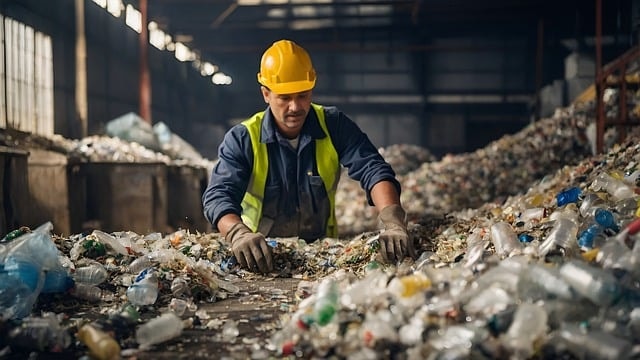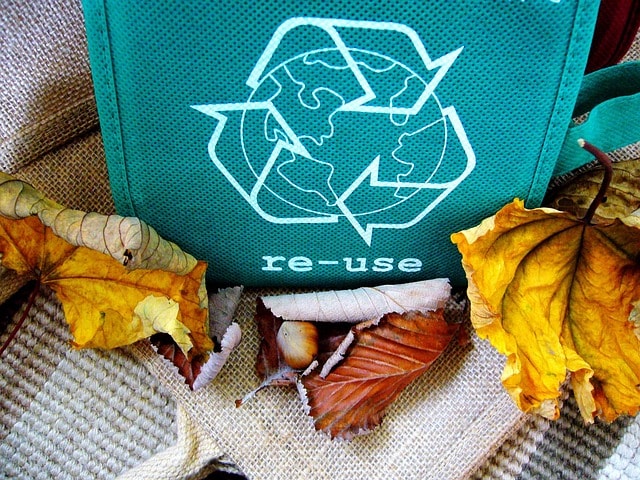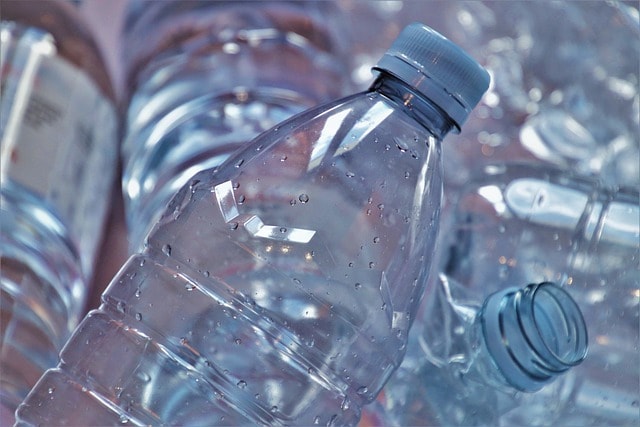So you want to find out how to start a recycling business in Australia? Nice work! A recycling business can be a good way to make a living and do your bit for the environment. But let’s be real, getting started can feel like trying to sort through a mountain of mixed recyclables.
So here are 7 tips to get your recycling business up and running.

Understanding the Recycling Industry
The recycling industry is a vital sector that plays a crucial role in reducing waste, conserving natural resources, and mitigating climate change. In Australia, the recycling industry is growing rapidly, driven by government initiatives, increasing consumer awareness, and advancements in technology. The industry involves the collection, sorting, processing, and transformation of waste materials into raw materials that can be used to manufacture new products. Understanding the recycling industry is essential for businesses, governments, and individuals who want to contribute to a more sustainable future.
The recycling industry is complex and involves various stakeholders, including waste generators, waste collectors, recycling facilities, manufacturers, and consumers. The industry is also influenced by government policies, regulations, and economic factors. To succeed in the recycling industry, it is essential to have a deep understanding of the recycling process, waste streams, and market trends.
1. Choose your recyclable materials niche
First off, let’s talk about what kind of recycling business you want to run. The recycling industry is pretty broad, you know? It’s not just about throwing everything in a big green bin and calling it a day. You’ve got options and choosing the right one can make or break your business.
You could specialise in:
-
Paper and cardboard recycling
-
Plastic waste recycling
-
E-waste recycling (old phones and computers)
-
Glass recycling
-
Metal recycling
-
Textile recycling (old clothes and fabrics)
-
Food waste
Take a look around your area and do your research. Is there a gap in the market you could fill? For example, did you know that in 2020-21 Australia generated 75.8 million tonnes of waste? And we only recycled 60% of it (Australian Government’s Department of Climate Change, Energy, the Environment and Water)? So there’s a lot of room for improvement if you can get a business model that works.
In Australia, the recycling sector is growing rapidly, driven by government initiatives, increasing consumer awareness, and advancements in technology. Let’s break it down a bit. Of that waste, 20% was paper and cardboard, 13% was plastic and 6% was glass. That’s a lot of recyclables. And that doesn’t even account for e-waste which can be really challenging for consumers.
Talk to local businesses and residents. What are they struggling to recycle? Maybe your area has plenty of paper recycling options but nowhere to take old electronics. Could you make that into a profitable business?
2. Get your recycling business plan together
I know, paperwork isn’t the most exciting part of starting a business. But trust me, a good business plan is your best mate when starting a new business. It’s like a map for your business journey, helping you avoid the potholes along the way.
Here’s some of what’s important to include:
-
Market research: Who are your customers? What’s the competition?
-
Financials: How much cash do you need to get started? When will you start making a profit?
-
Operations: How will your daily operations work? What equipment will you need?
-
Marketing strategies: How will you promote your business?
-
Equipment and space: Where will you be based? What machinery will you need?
If you’re stuck for where to start, no worries! Check out the business.gov.au website. They have some great resources to help you out, including templates and guides for Aussie businesses.
Remember, your business plan isn’t set in stone. It’s a living document that you can (and should) update as your business grows and changes. Think of it as your business’s GPS – it helps you know where you’re going but you can always recalculate if you need to take a detour.

3. Get your paperwork in order
Okay, here’s the not-so-fun bit – permits and licences. The recycling industry has a lot of rules and regulations and for good reason. We’re dealing with waste after all! So talk to your local council and your state’s environmental protection agency. They’ll tell you what permits you need. It may seem like a hassle now but will save you headaches down the track.
Here’s a quick list:
-
Environmental protection licences
-
Waste transport licences
-
Local council permits
-
Business registration documents
The exact requirements will vary depending on your location and the type of recycling you’re doing. For example if you’re recycling hazardous materials like batteries or certain types of e-waste you’ll need special permits.
Don’t forget about insurance too. Public liability insurance is a must and you may want to consider professional indemnity insurance as well.
It’s a good idea to talk to a lawyer or business advisor who knows the recycling industry inside out. They can help you tick all the boxes.
4. Get equipped
Now for the fun bit – buying equipment! This is where your recycling business starts to feel real. Depending on what you’re recycling you might need:
-
Sorting machines
-
Shredders or crushers
-
Balers
-
Washing systems
-
Forklifts or other material handling equipment
-
Trucks for collection and transportation
Don’t feel like you need to buy everything brand new. There’s often good second-hand equipment available that can help you save costs when you’re just starting out. Just make sure it’s in good condition and meets all the necessary safety standards.
Remember, the equipment you choose will depend on your niche. If you’re doing paper recycling you’ll need different gear than if you’re recycling plastics or electronics.
And don’t forget about safety equipment! Proper protective gear for you and your staff is essential. We’re talking hard hats, safety glasses, gloves, the whole lot.
5. Work out your collection system
You’ve got to get those recyclables from somewhere, right? Think about how you’ll collect materials from businesses, homes or wherever your sources are. This is a big part of your operation so take your time to get it right.
Maybe you could:
-
Place collection bins around town
-
Partner with your local council or shopping centres
-
Buy a collection truck or two
-
Create a pickup schedule
-
Offer incentives for people or businesses to bring recyclables to you
Just make sure whatever system you choose is legal and efficient. No one likes a messy recycling operation! Understanding your waste stream is crucial for designing an efficient collection system and choosing the right equipment.
Consider using technology to streamline your collection process. There are some great apps out there that can help you optimise your collection routes and schedule pickups more effectively.
And don’t forget education! The more people know how to sort their recyclables the easier your job will be. Consider creating some simple, clear guidelines for your customers on what can and can’t be recycled.
6. Source Financing
Sourcing financing is a critical step in starting a recycling business. The cost of setting up a recycling facility can be significant, and businesses need to secure funding to cover the initial investment. There are various financing options available, including loans, grants, and investments.
The Australian government offers various grants and incentives to support the recycling industry. For example, the Australian Recycling Investment Fund provides funding for recycling infrastructure projects, while the National Waste and Recycling Industry Development Centre offers grants for research and development projects. Businesses can also explore private financing options, such as loans from banks or investments from venture capitalists.
In addition to government grants and private financing, businesses can also consider crowdfunding, angel investors, or secured and unsecured loans from business lenders options. It is essential to develop a solid business plan and financial projections to secure financing and ensure the long-term viability of the recycling business.
7. Find your market
Here’s the big one – you need someone to buy your recycled materials. After all recycling isn’t just about collecting and processing materials. You need to close the loop by selling those materials back into the manufacturing stream.
Start networking and find potential buyers like:
-
Manufacturing companies
-
Raw material suppliers
-
Other recycling businesses
-
Export markets (just make sure you follow the rules for exporting)
Building relationships with these people is key. Small and medium businesses can be key customers for your recycled materials, especially in industries like retail and food service. And keep an eye on those market prices – they can be a bit of a rollercoaster in the recycling world!
Don’t put all your eggs in one basket, either. Having multiple buyers for your materials can help you if one market dries up.
And here’s a hot tip: consider partnering with local businesses to create a closed-loop recycling system. For example if you’re recycling glass you could partner with a local brewery or winery to recycle their bottles and sell the recycled glass back to them. It’s a win-win!
8. Build Relationships
Relationship are critical to the success of your recycling business. You’ll want to establish relationships with waste generators, collectors, recycling facilities, manufacturers, and consumers to ensure a steady supply of waste materials and a market for recycled products. Building relationships with waste generators, such as shopping centers, restaurants, and households, is essential to secure a steady supply of waste materials. Businesses can offer competitive pricing, reliable collection services, and education on the importance of recycling to build trust and loyalty with waste generators.
Recycling facilities and manufacturers are also important to ensure that recycled materials are processed and transformed into high-quality products. Businesses can establish partnerships with recycling facilities and manufacturers to ensure a consistent supply of raw materials and to develop new products. Finally, building relationships with consumers is essential to promote the use of recycled products and to educate them on the importance of recycling. Businesses can engage with consumers through social media, marketing campaigns, and community events to raise awareness about the benefits of recycling and to promote their products.
By focusing on stakeholders relationships across the recycling value chain, businesses can ensure a steady supply of waste materials, a market for recycled products, and a successful and sustainable recycling business.
9. Promote
Last but not least you’ve got to let people know you exist! In today’s digital world there are heaps of ways to get the word out about your business. Think about:
-
Setting up a website
-
Getting on social media
-
Partnering with local green groups
-
Running educational programs for schools and businesses
-
Participating in community events
-
Starting a blog about recycling and sustainability
The more people know about recycling (and your business) the better off we’ll all be. And don’t be afraid to brag a bit. Let people know about the good you’re doing for the environment.
Create some snazzy infographics about recycling stats and facts. People love sharing that kind of stuff on social media and it will help spread the word about your business.
You could also look into local business awards or sustainability certifications. These will help boost your credibility and give you something to market.

Getting started
Recycling businesses in Australia aren’t always easy, but they are possible. Follow these 7 tips, stay the course and keep up to date with new recycling tech and trends. You’re helping create a more sustainable Australia. You’re tackling the waste problem, creating jobs and maybe even inspiring others to think more about their environmental impact. But as with any business, be sure the numbers stack up first so you don’t end up on the waste pile yourself.
The recycling industry is always changing with new tech and processes popping up all the time. Stay curious and be open to change. Who knows you might just come up with the next big thing in recycling!
With a bit of hard work and a passion for sustainability you could be the proud owner of a thriving recycling business before you know it. And hey you’ll be able to say you’re literally cleaning up the country. Now that’s something to be proud of!

